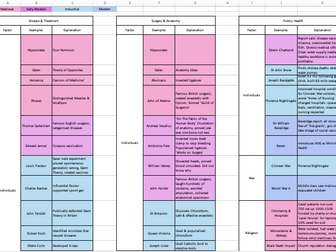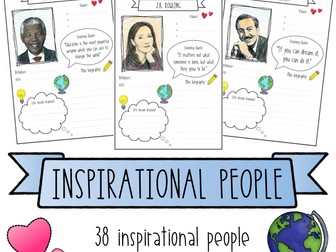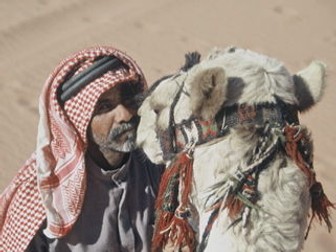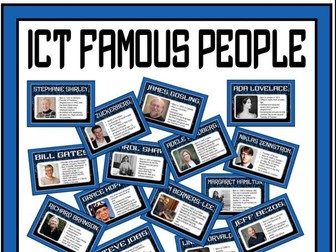Sale

People and Communities - EYFS PSHE
People and communities - community EYFS PSHE lesson.
A detailed, fully resourced PSHE lesson suitable for EYFS/Reception age children. This lesson has been designed for use with children in Reception, however, the PowerPoint and activities could be adapted for use with other age groups.
In this lesson, the children will learn about communities and what it means to belong to one. We will discuss a range of examples including our family, class, school and local communities, as well as reflecting on the contributions we can make as individuals to make our communities better for everyone.
The lesson includes a sing-along starter (to ensure a swift start to the lesson), a video link to Amy June Bates’ The Big Umbrella, an adult-led focus task, independent activities to be carried out during continuous provision, and a plenary task.
Created to fit the new DfE and PSHE Association statutory 2020 /21 guidelines, the lesson includes a detailed PowerPoint, all editable with accompanying tasks and worksheets.
The lesson has been left editable and is filled with engaging activities. It is designed to be ‘no prep’, so you can just pick it up and use it, although it is still adaptable should you wish to.

People in the community matching exercise
A 3 way matching activity which requires students to match pictures of people in the community (such as police officers) to pictures of where you might find them and also to pictures of what they do.
There is also a page of key words. These may not be needed but may be useful for students that struggle with naming each picture or for spelling.

Communication - PHSE
Learning Objectives:
-To understand how positive communication can help when interacting with other people.
-To realise the importance of positive communication.
-To be able to develop your listening and observational skills.
- To understand the benefit of positive communication.
This is one of the best resources on this website! A must buy! Great power points, classroom discussion points, the students will definitely benefit from this! Purchase this resource now! Biggest bargain on this website - only £1! Due to high demand, this resource could be charged at £15 in the future, so buy now!
Sale

Belonging to a Community - KS1
Belonging to a community KS1 PSHE lesson. A one-two hour long, very detailed, fully resourced PSHE lesson suitable for KS1. This lesson has been created for Year 2, however, the contents may also suit younger students in KS2 (Year 3).
In this lesson, the students will be discussing what it means to belong to a community. We will look at a variety of groups that people can belong to and reflect on the way that we know we belong. We will identify the groups that we belong to, and any associated roles that we may have within these groups.
In our main task, we will take a detailed look at how we can make our community welcoming and inclusive to all groups, in particular, families who are refugees. We will read Kate Milner’s story ‘My Name is Not Refugee’ and complete accompanying tasks to reflect on the message behind the story.
The lesson includes a starter activity, a discussion task, a video clip with questions, a main activity and a plenary. Created to fit the new DfE and PSHE Association statutory 2020 /21 guidelines, the lesson includes a detailed PowerPoint, all editable with accompanying tasks and worksheets.
The lesson has been left editable and is filled with engaging, well differentiated and fun activities. It is designed to be ‘no prep’, so you can just pick it up and use it, although it is still adaptable should you wish to.
You can download a free example of our KS1 resources here:What is the Internet?
Who are EC Resources?
EC Resources are the top TES PSHE providers and are a group of teachers who work together to create easy to use, high quality and editable lessons and units of work. We have created lessons for The Children’s Commissioner, The Bank of England, MACS Charity, Tes, LikeToBe Careers, the Criminal Cases Review Commission (UK Gov) and have also completed PSHE and Citizenship commissions for schools across the UK.
You can contact us at info@ecpublishing.co.uk
Teaching PSHE, RE or Citizenship GCSE next year? Why not join our Citizenship and PSHE teachers Facebook group, with 8000 other teachers, for guidance, advice and resource sharing.

History: Health & the People timeline
Timeline of AQA History Paper 2 Section A/A: ‘Britain: Health and the people: c1000 to the present day’ course organised into three catagories, then by factor.
The timeline is organised into three categories: ‘Disease & Treatment’, ‘Surgery & Anatomy’ and ‘Public Health’.
Within these catagories, examples are organised by factor: Individuals, War, Religeon, Chance, Government, Communication, Science & Technology, Economy
Examples for each factor are listed chronologically and colour coded by parts 1/2/3/4 in the textbook, followed by a short explanation, for example: Disease & Treatment | Individuals | Louis Pasteur | Swan neck experiment proved spontaneous generation wrong, Germ Theory, created vaccines
Perfect for teachers teaching or students revising for History GCSE exam content. Very useful for question 4.
I have many other history resources on exam technique and other courses available in my shop which pair nicely with this.
undefined

Unit 5 (P2) - People Skills and Communication
All: To understand the skills and personal attributes required for developing relationships with individuals
Most: to understand the importance of effective communication in HSC
This whole lesson covers P2 cirteria in Unit 5 - Meeting Individual Care Needs
Includes:
Engaging Powerpoint
Video
Worksheet - Case Study
Opportunities for discussions
Stretch and challenge questions

KS3 French : Describing people - communicative drills
A set of communicative oral translation drills to practise French adjectives with bilingual word lists

Inspirational People Biographies
Character Education:
‘Education the mind without educating the heart is no education at all’.
Aristotle
Teach your pupils about values through learning about the lives of inspirational people. These 38 famous people are great examples of courage, ambition, kindness, perseverance, dignity, determination, strength, wisdom, creativity, leadership, standing up for what is right, empathy, resilience, failure, success, bravery, commitment, compassion, humility, innovation, optimism, selflessness and much, much more!
This resource includes 40 pages, a front cover, a contents page and 38 pages each with a sketch of the famous person for pupils to colour in, an inspirational quote said by each famous person and space to write a short biography, where and when they were born, their values and lessons learned from their life story.
The 38 inspirational people included are:
Walt Disney
Ruby Bridges
Nick Vujicic
Malala Yousafzai
Albert Einstein
Princess Diana
Abraham Lincoln
Mother Teresa
Martin Luther King Jr.
Rosa Parks
Mahatma Gandhi
J.K. Rowling
Nelson Mandela
Liz Murray
Winston Churchill
Michelle Obama
Michael Oher
Emmeline Pankhurst
Maya Angelou
Stephen Hawking
Irena Sendlerowa
Desmond Tutu
Harriet Tubman
Thomas Edison
Helen Keller
Michael Jordan
Florence Nightingale
Steve Jobs
Oprah Winfrey
Barack Obama
Elizabeth Fry
Bill Gates
Betty Ann Waters
Scott Neeson
Anne Frank
Lionel Messi
John Lennon
Audrey Hepburn

Famous LGBTQ+ Community List of People
128 famous people belonging to the LGBTQ+ Community including athletes, actors, singers, activists, writers etc
If theres a class of 32 theres enough names to make each student research 4 names and make a powerpoint of their findings.
We need to celebrate members of the LGBTQ+ Community to be more inclusive to the students we teach and to be more accepting of everyone.
Sale

Diverse Communities
Diverse Communities PSHE Lesson. A one hour-long, very detailed, fully resourced PSHE lesson suitable for KS2. In this lesson, the students will explore what it means to belong to a community. We will discuss different types of communities (family, social, classroom, school, neighbourhood etc) and various reasons why groups of people are connected. We will look at some of the different ways that we can support our communities, through volunteering, helping others and behaving responsibly in shared spaces. We will also discuss why we have a shared responsibility to care for others and work together for the good of everyone in the community. The lesson includes an information sheet, a video clip task, a creative task and an assessment based plenary.
Created to fit the new DfE and PSHE Association statutory 2020 /21 guidelines, the lesson includes a detailed PowerPoint, all editable with accompanying tasks and worksheets.
The lesson has been left editable and is filled with engaging, well differentiated and fun activities. It is designed to be ‘no prep’, so you can just pick it up and use it, although it is still adaptable should you wish to.
Who are EC Resources?
EC Resources are the top TES PSHE providers and are a group of teachers who work together to create easy to use, high quality and editable lessons and units of work. We have created lessons for The Children’s Commissioner, The Bank of England, MACS Charity, Tes, LikeToBe Careers, the Criminal Cases Review Commission (UK Gov) and have also completed PSHE and Citizenship commissions for schools across the UK.
You can contact us at info@ecpublishing.co.uk
Teaching PSHE, RE or Citizenship GCSE next year? Why not join our Citizenship and PSHE teachers Facebook group, with 8000 other teachers, for guidance, advice and resource sharing.

Helping People & The Environment - Community Matters (KS1)
Community Matters is an exciting new free resource from the Archbishop of York Youth Trust providing activities and ideas to help pupils explore why community matters and how children and young people can play their part in creating positive change, particularly as we rebuild our communities post-Covid restrictions.
The KS1 resource has two packs focusing on Social Issues and Environmental Issues with a range of activities designed to ignite, inspire and empower children and young people to make community matter and explore what it means to live in the wider world, as active citizens. Each pack also contains ideas for collective worship.
Each pack contains:-
PowerPoint Presentation
PDF document with Teacher Notes

People in Organisations - HRM, Structure, Communications - A Level Business
Powerpoints, worksheets, games and case studies covering the topics of:
Human Resource Management
Communications
Organisation Structure

Social and Community Studies - Gender and Identity - LGBTQIA+ peoples
Part of a set of resources created for a senior Social & Community studies class in Australia (QCAA syllabus). The other resources are also available in my store - Aussie_Resources. Designed for use in 70 minute lessons. The end of term assessment for this unit was a 90 minute short response examination.
A lesson designed to teach students about groups which have been marginalised in the past (LGBTQIA+) and the importance of inclusivity. It begins with a discussion of whether students have seen television show Queer Eye and why it is important for marginalised groups to have representation in the media. Following this students are introduced to groups outside of the outdated ‘gender binary’ (e.g. androgynous, gender fluid / gender queer, transgender etc.) and to theconcept of gender dysphoria / gender nonconformity. Students are to take notes and engage in discussions of visual stimulus and clips (including some from the reboot of Will and Grace.) This lesson also introduces students to the various types of sexuality (Asexual, bisexual, pansexual, homosexual and heterosexual). Teach students about the importance of respecting people’s preferred pronouns. The second part of the lesson is skills based where students are introduced to one type of question from their upcoming exam.They must make inferences about someone based on their appearance + information about occupation (job) and personal interests. We talk through an ‘I do’ where my answers have been colour coded to show where I have provided evidence / addressed different aspects of the question. Following this, students have to do their own.

PHSE Assembly - helping people and the school community
Assembly with theme – helping one another / helping to look after something special / what makes us special.
Focus on school community and how the children and adults make the school special with being a specific type of role model.

People who Live in the Desert: Photos
Photos from my time living with a Bedouin community in the desert of Wadi Rhum, Jordan. Taken on slide film, before digital cameras were invented. May be useful for exploring other countries and cultures and comparing life where you live and life in a desert environment.

People in business section 2 revision worksheet complete
Revision questions for section 2 IGCSE Business Studies, People in business.
Quick revision questions and prompts. Covers all of the important knowledge. Use for studying, revision, end of topic review, quiz, classwork, homework etc. 0450 Business studies Cambridge IGCSE.
2.6 Motivating employees
2.7 Organisation and management
2.8 Recruitment, selection and training of employees
2.9 Internal and external communication
Why people work
Benefits of well motivated work force
Maslow’s Hierarchy
Taylor and Herzberg
Motivational theories
Financial rewards
non-financial rewards
Organisational chart
Chain of command, span of control, levels of hierarchy
roles and responsibilities of managers, supervisors and employees
function of management
delegation
leadership styles
trade unions
Benefit and limitation of part time and full time employees
Induction training on the job training and off the job training
dismissal and redundancy
downsizing workforce
legal controls
Effective communication
Benefits and limitations of different communication methods
Communication barriers and problems and overcoming

IT ICT FAMOUS PEOPLE POSTERS - COMPUTERS COMPUTING DISPLAY
ICT FAMOUS PEOPLE
TEACHING and DISPLAY RESOURCES
Resources included are as follows:
PDF file for you to print.
Title page to head wall display (A4) – ‘famous people’
Long banner spread over 3 pages ‘Information Communication Technology’
18 A4 posters of famous people in IT – such as Steve Job, Mark Zuckerberg, Ada Lovelace, Bill Gates etc.
Each Poster has the persons name, photo and basic facts.
Great for a wall display in classroom or around the school.
Sale

Community helpers - KS1 PSHE
Community helpers KS1 PSHE lesson.
A one-hour long, very detailed, fully resourced PSHE lesson suitable for KS1. This lesson has been created for Year 1, however, the activities are also suitable for students in Year 2, and could easily be adapted for use with older students.
In this lesson, the children will learn about the roles and responsibilities of the people who work and live in our local community. We will discuss a variety of community helpers including police officers, firefighters, postal workers, health workers, teachers plus many more!
We will identify the best people to help us in a variety of situations and reflect on the value our community helpers bring to our local area. The lesson includes a case study starter, a video clip with accompanying questions, a ‘secret helper’ puzzle activity, and a plenary task.
Created to fit the new DfE and PSHE Association statutory 2020 /21 guidelines, the lesson includes a detailed PowerPoint, all editable with accompanying tasks and worksheets.
The lesson has been left editable and is filled with engaging, well differentiated and fun activities. It is designed to be ‘no prep’, so you can just pick it up and use it, although it is still adaptable should you wish to.
Who are EC Resources?
EC Resources are the top TES PSHE providers and are a group of teachers who work together to create easy to use, high quality and editable lessons and units of work. We have created lessons for The Children’s Commissioner, The Bank of England, MACS Charity, Tes, LikeToBe Careers, the Criminal Cases Review Commission (UK Gov) and have also completed PSHE and Citizenship commissions for schools across the UK.
You can contact us at info@ecpublishing.co.uk
Teaching PSHE, RE or Citizenship GCSE next year? Why not join our Citizenship and PSHE teachers Facebook group, with 8000 other teachers, for guidance, advice and resource sharing.

Citizenship: British Values: Tolerance and Respect: People; skills and community
British Values: Tolerance and Respect: People; skills and community
PowerPoint presentation and work book that covers:
Aims:
Understand that we are all unique, we share some similarities but we are also different
Understand that different personalities and skills are important to help us work together as a team and community
Learning outcomes:
Define and match key words
Identify and tally people’s differences and similarities
Identify features or people and community
Match people and skills
Work together to make and play a game
Evaluate the game you made and played




